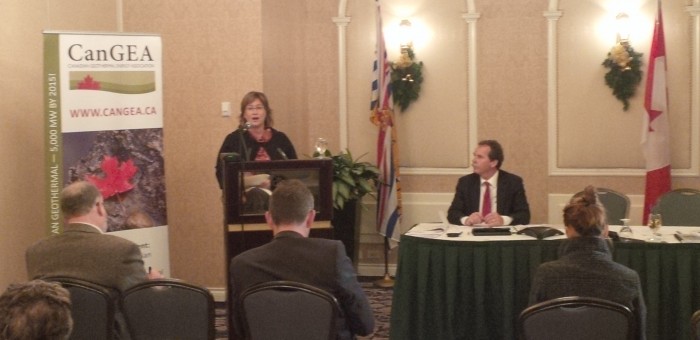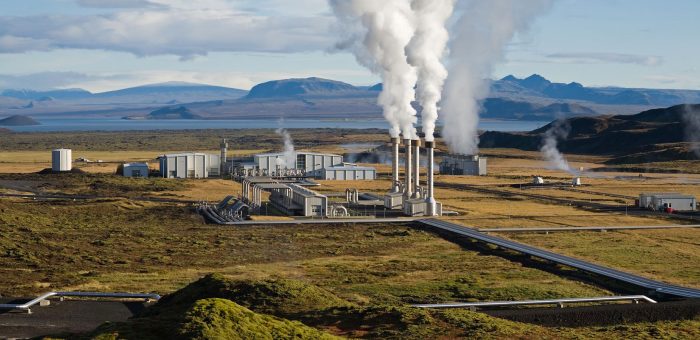Introducing a bill to establish a Holodomor day of remembrance in British Columbia
Over the last several months I have been working towards building all party support for a Private Member’s bill that I previously introduced. I’m delighted to say that all three parties have agreed to support the timely passing of Bill M225: Ukrainian Famine and Genocide (Holodomor) Memorial Day Act, which I introduced, in slightly revised form, at First Reading today.
This bill would establish the fourth Saturday in November as an official day of remembrance: Ukrainian Famine and Genocide (Holodomor) Memorial Day. Similar legislation has already been passed by the federal parliament, as well as by Alberta, Saskatchewan, Manitoba, Ontario and Quebec.
Below I reproduce the video and text of the Bill’s introduction. I also append a copy of our accompanying media release which includes quotes from BC NDP MLA Bruce Raulson and BC Liberal MLA Tom Shypitka.
Video of Introduction
Text of Introduction
A. Weaver:
I move that a bill intituled the Ukrainian Famine and Genocide (Holodomor) Memorial Day Act, 2019, of which notice has been given in my name on the Order Paper, be introduced and now read a first time.
I’m pleased to be introducing this bill that would establish the fourth Saturday in November as Holodomor Memorial Day throughout British Columbia.
The term “Holodomor” is derived from the words морити голодом (moryty holodom) meaning extermination by hunger. During Holodomor, between 3 and 5 million Ukrainians died as a result of a deliberate and politically-motivated famine in 1932-33.
This Bill, if passed, would allow the fourth Saturday in November to be memorialized by the Legislature as Ukrainian Famine and Genocide (Holodomor) Memorial Day.
Canada is home to the world’s third-largest Ukrainian population behind Ukraine and Russia, with an estimated 1.36 million Ukrainian-Canadians living across the country.
Among them are members of my family. In my family’s case, as part of the collectivization of farms, my дід (grandfather) was shipped to Northern Russia. My Ukrainian mother Ludmilla now lives here in Victoria with my father.
In this tabling I would also like to recognize the Minister of Jobs, Trade and Technology for his continued efforts to have Holodomor recognized in this House.
Motion approved.
A. Weaver: I move that the bill be placed on the orders of the day for second reading at the next sitting of the House after today.
Bill M225, Ukrainian Famine and Genocide (Holodomor) Memorial Day Act 2019, introduced, read a first time and ordered to be placed on orders of the day for second reading at the next sitting of the House after today.
Media Release
Weaver introduces private member’s bill for Holodomor Day
BC to recognize the millions of
Ukrainians killed in man-made famine
For immediate release
Oct. 23, 2019
VICTORIA, B.C. – B.C. Green Leader Andrew Weaver in collaboration with Bruce Ralston, Minister of Jobs, Trade and Technology, honoured all survivors of the Ukrainian famine and genocide, also known as the Holodomor, by introducing legislation to enshrine a day of remembrance in the province for all time.
“By enshrining Ukrainian Famine and Genocide (Holodomor) Memorial Day as an officially designated day in British Columbia, we are acknowledging and honouring the millions of people who were victims of this deliberate political strategy of starvation and we are asserting our collective pledge: never again,” said Dr. Andrew Weaver, MLA from Oak Bay- Gordon Head. “My grandfather and his family were survivors of the Holodomor. He and his wife, together with my mother and her siblings, made their way to Canada after the second world war. She told me stories of living in a refugee camp in southern Europe and a chicken coop in France as they made their way to safety.
“Since then thousands more Ukrainians have made Canada their home, adding to the diversity of this great nation and contributing to its culture and prosperity. I am proud to be counted among the descendants who have made British Columbia their home.”
While the government of Canada has legislation recognizing this day, B.C. has never formally had its own legislation recognizing this day. This bill is the result of the B.C. Green Caucus’ collaboration with the Ministry of Jobs, Trade and Technology, and will be implemented by the Ministry of Tourism, Arts and Culture, and reflects shared values.
“This legislation creating a memorial day for the victims and survivors of the Holodomor is the culmination of efforts spanning many years, starting with a private member’s bill I introduced back in 2009,” said Minister Ralston. “It is important that we take this time to reflect on this atrocity and pay homage to the survivors and their descendants living in B.C. who contribute so much to the strength and prosperity of this great province.”
“As we mourn the lives lost from one of the most heinous acts in history, we commit to stand together against hatred and violence in all its forms,” said Lisa Beare, Minister of Tourism, Arts and Culture. “The official declaration of Holodomor Memorial Day in B.C. speaks to the determination and leadership of our government to learn from this terrible event in Ukrainian history and our resolve to stand up against racism, hate and discrimination here in B.C. and around the world.”
These principles transcend party lines.
“Holodomor Memorial Day is a reminder of a dark chapter in history that saw the exile and starvation of millions of Ukrainian men, women and children from 1932-33,” said Tom Shypitka, MLA for Kootenay East. “By commemorating this day here in British Columbia, we are affirming our position with the rest of Canada that we are a place of welcome that remembers the past while striving for a better future. We encourage all British Columbians to remember the victims of the Holodomor on this sombre day.”
Coming together over shared values is the strength of this minority government, and it is what unites all British Columbians.
“This legislation represents our commitment to remember our collective responsibility to challenge hatred and intolerance and to protect the vulnerable people in our society,” Weaver said. “British Columbia is a province that values its diversity and strives to give voice to the many communities that call it home.”
Background
- The Ukrainian Famine and Genocide killed between three and four million Ukrainians between 1932 and 1933 as part of Joseph Stalin’s plan to eliminate a democratic independence movement.
- The atrocities, including the total deaths, were covered up by Soviet authorities for decades.
- The survivors and their descendants have contributed to their communities across Canada and in BC.
- B.C. has annually proclaimed Holodomor Day the fourth Saturday in November under the Federal legislation. This legislation removes the need to annually proclaim this day by designating on the fourth Saturday in November Ukrainian Famine and Genocide (Holodomor) Memorial Day to exist in perpetuity.
-30-
Media contact
Macon L.C. McGinley
Press Secretary, B.C. Green Caucus
+1 250-882-6187 |macon.mcginley@leg.bc.ca
Why is British Columbia not exploiting its geothermal energy resources?
Today in the Legislature I asked the Minister of Energy, Mines and Petroleum Resources what her ministry is doing to encourage the use of our outstanding geothermal resources. Readers of this site will know that since as early as 2014, I have been trying to get both the BC Liberal Government and the present BC NDP government to recognize the incredible opportunity that geothermal energy innovation and production offers British Columbia.
Below I reproduce the video and text of our exchange.
Video of Exchange
Question
A. Weaver: Yesterday I asked the Minister of Jobs, Trade and Technology what his ministry was doing to encourage a strategic approach to transitioning away from the reliance on fossil fuels development in northern B.C. He talked about the importance of innovation. I agree. But there are barriers to innovation in B.C., and those barriers lie in B.C. Hydro.
Take the Borealis geothermal project in Valemount, for example. The member for Prince George–Valemount and I have been trying to get government to recognize the enormous potential for this project to showcase innovation in B.C.’s clean energy sector. British Columbia is the only jurisdiction in the Pacific Rim that isn’t using its geothermal resources. It strikes me as a no-brainer. Community support is strong. Valemount is at the end of an existing B.C. Hydro line, and with Glacier Destinations moving forward, enhanced local power production on an already stretched and often intermittent line will be required.
My question is this to the Minister of Energy, Mines and Petroleum Resources. Could she please explain what her ministry is doing to encourage the use of our outstanding geothermal resources?
Answer
Hon. M. Mungall: The opportunity for geothermal needs to be proven in B.C., and there are some companies that are doing just that. They’re working to prove up the geothermal resources that have been identified. Borealis is one of them. As the member will know — and the member for Prince George–Valemount — they received a permit just over a year ago to start doing that work. They actually have a new permit before the ministry. I look forward to seeing the recommendation from the ministry in terms of how to proceed with that permit so that they can do the work that they’ve been doing to prove up this opportunity with geothermal.
Supplementary Question
A. Weaver: The reality is that on the ground nothing is being done, not because of lack of industry or community support but rather because of cumbersome regulatory barriers and the absence of a champion within this government. Geothermal drilling is being regulated by the Oil and Gas Commission via rules that don’t reflect the practice within the international geothermal sector.
There is no ability for geothermal projects to lever existing federal funds without a strong provincial commitment. Our geothermal resources have the potential to diversify and decarbonize B.C.’s energy systems, provide energy with minimal environmental impact footprint — probably the smallest environmental footprint of any type of resource like that — create jobs and prosperity in northeastern B.C. and provide a showcase for innovation in our clean energy sector.
My question again is to the Minister of Energy, Mines and Petroleum Resources. When will her ministry start streamlining the regulatory process and start encouraging, as opposed to discouraging, British Columbia’s outstanding geothermal sector?
Answer
Hon. M. Mungall: My ministry has done nothing to discourage the opportunities with geothermal — in fact, quite the opposite.
Interjections.
Mr. Speaker: Members.
Hon. M. Mungall: I’m not too sure why the Liberals are all worked up about this particular issue, hon. Speaker. It’s not like they ever discovered geothermal when they were in office. The reality is that there’s quite a bit of science here that needs to be done, and it’s about a process in terms of actually making sure the resource is sufficient enough, hot enough, to actually generate electricity from it. That needs to be done. And that’s exactly what Borealis and other companies who are interested in doing this work in British Columbia are given the opportunity to do. I’m very glad that they’re here and making those investments, and I look forward to working with them going forward.
What’s BC doing to promote a low carbon economy in Northern BC?
After asking the Minister of Environment and Climate Change Strategy yesterday about the inconsistency between British Columbia’s CleanBC plan to reduce greenhouse gas emissions and the fact that the Deputy Minister of Energy, Mines and Petroleum Resources recently went to Japan to tout the idea of even more LNG development in B.C., I posed a supplemental question to the Minister of Jobs, Trade and Technology. In that question I asked what his ministry was doing to encourage a strategic approach to transitioning away from the reliance on fossil fuel development in northern British Columbia.
Below I reproduce the video and text of our exchange. The BC Liberals were once more quite boisterous in their heckling.
Video of Exchange
Question
A. Weaver: People in northern British Columbia will experience the impacts of climate change faster and more profoundly than those of us on southern Vancouver Island. This region has long been affected by the boom-and-bust cycles of fossil fuel development, where barely viable multinational entities are kept afloat through never-ending and ever-increasing corporate welfare. A just transition for rural communities away from their dependence on fossil fuel extraction and uncertainty in commodity cycles would create stable, long-lasting local prosperity. As Forbes magazine just noted this past summer, transitioning to a low-carbon economy represents the single biggest business opportunity in human history.
My question is to the minister….
Interjections.
A. Weaver: I understand there’s heckling from the Luddites opposite, who still are struggling with the issue of the science of climate change, but please give me my chance to actually ask the question of government.
The question is to the Minister of Jobs, Trade and Technology. What is his ministry doing to encourage a strategic approach to transitioning away from the reliance on fossil fuel development in northern B.C.?
Answer
Hon. B. Ralston: Our government is committed to encouraging innovation in the British Columbia economy and building a sustainable economy that benefits everyone. The tech sector is a strong and vital component of our diverse economy, employing over 120,000 people in British Columbia. But it’s important that that growth be distributed regionally, and indeed, it is being distributed regionally. There are several programs in place that are doing just that.
Innovation Central Society — the member for Prince George–Valemount will be familiar with this — is Innovate B.C.’s central technology accelerator for northern British Columbia. Through the Innovation Central Society, direct funding of $100,000 has been provided to support 14 local companies helping the region’s technology sector grow and thrive.
There are other companies. I’ll give another example, of a company in Smithers. Jet Controls is a building control dashboard that uses HVAC data and Environment Canada weather data to predict when outdoor climate will change and precondition a building’s geothermal system to be ready for whatever cooling or heating demand is placed on the system.
It’s important that the range of technology options be distributed throughout the province, and that’s just what we’re doing.
Tribute to Al Martin
In the legislature today I rose to pay tribute to my friend, constituent and conservation champion Al Martin. British Columbia may have lost a visionary conservationist, but his legacy will always be remembered.
Below I reproduce the video and text of my tribute.
Video of Tribute
Text of Tribute
A. Weaver: It is with a heavy heart that I rise today to pay tribute to a great man, Al Martin, who tragically passed away on October 15. Al was an admired colleague, mentor and friend to many. He was tirelessly devoted to the betterment of fish and wildlife management in our province and spent more than 30 years in B.C.’s public service. He was a beloved leader in B.C.’s conservation community.
Al’s career started as a fisheries biologist in the Kootenays in the late 1970s. In the 1980s, he moved to Victoria and worked in fisheries management before becoming the director of the watershed restoration program. Soon after that, he was the director of fish and wildlife for the province and then assistant deputy minister in the department of agriculture and fisheries.
My office had the great fortune of working closely with Al over the last five years. He was incredibly generous with his time and wisdom. A man of calm, careful, composed and deliberate words, when Al spoke, I listened. He had a strategic mind and determined demeanour. There was never anything I could tell Al. Even if I had breaking news, he’d already have a copy of it in his back pocket.
Highly professional and laser focused, the only subject that could distract Al from the issue at hand was his family. Al had three children, Alex, Michael and Joanne, and considered his beloved wife Julie’s four daughters his own as well: Michelle, Christianne, Jessica and Lexi. Al also had nine grandchildren — Elise, Penny, Omry, Mayer, Lincoln, Beckett, Sawyer, Oliver and Hudson — and he adored each and every one of them.
My policy advisor Claire was at a fisheries conference with Al last year. As they sat quietly listening to the presentation, Al took out his phone and slid it across the table without a word. On the screen was a picture of a perfect, brand-new baby. His new grandchild, he said, beaming with pride, born a few days earlier.
Thank you, Al, for your service to our province. May we honour your legacy by advancing conservation for future generations and for your beloved grandchildren.
Conflicting signals from energy ministry: LNG or a climate plan?
Yesterday in the BC Legislature I rose during Question Period to ask the Minister of Environment and Climate Change Strategy about the inconsistency between British Columbia’s CleanBC plan to reduce greenhouse gas emissions and the fact that the Deputy Minister of Energy, Mines and Petroleum Resources recently went to Japan to tout the idea of even more LNG development in B.C.
Below I reproduce the video and text of our exchange. The BC Liberals were quite boisterous in heckling the Environment Minister as he tried to respond to my question.
Video of Exchange
Question
A. Weaver: It’s been troubling to hear some B.C. organizations recently push the false narrative that by exporting LNG we are somehow helping to reduce global greenhouse gas emissions. It’s not surprising to see them puppet the LNG rhetoric from the previous government, since the signals being sent by this government are often in conflict with one another. For example, we know that increasing an LNG export capacity is inconsistent with CleanBC and our goal of reducing greenhouse gas emissions by 40 percent by 2030. Yet despite this, earlier this month the Deputy Minister for Energy, Mines and Petroleum Resources went to Japan to tout the idea of even more LNG development in B.C.
My question is to the Minister of Environment and Climate Change Strategy. How can British Columbians have confidence that this government is serious about being a climate leader when a deputy minister is travelling abroad stumping for further fossil fuel development?
Answer
Hon. G. Heyman: Thank you to the Leader of the Third Party for the question.
As the Leader of the Third Party knows well, both his party and our party on the government side were convinced going into the last election that we had a serious climate credibility problem in British Columbia, despite the fact that B.C. was the first jurisdiction in North America to introduce a carbon tax. We felt that way because we had seen a complete reversal of intention to do anything whatsoever about reducing…
Interjections.
Mr. Speaker: Members.
Hon. G. Heyman: …emissions in B.C.
In fact, don’t take my word for it. Even former Premier Gordon Campbell expressed disappointment with his party’s approach under Christy Clark. That led to the Green Party caucus and our caucus agreeing that it was important to have a serious, quantifiable climate action plan in British Columbia, and we set about to do exactly that together. That resulted in CleanBC.
Interjections.
Mr. Speaker: Members.
Hon. G. Heyman: That resulted in a plan that’s measurable to meet our climate targets.
I’m pleased to have worked with the Leader of the Third Party and their caucus on putting in place a robust accountability framework so British Columbians won’t have to take our word for it. They will be able to rely on regular reporting and verification that we are on a path to do what we say we will do. What we have said we will do is reduce emissions, and what we have said we will do is that the development of LNG must fit within our CleanBC plan.








